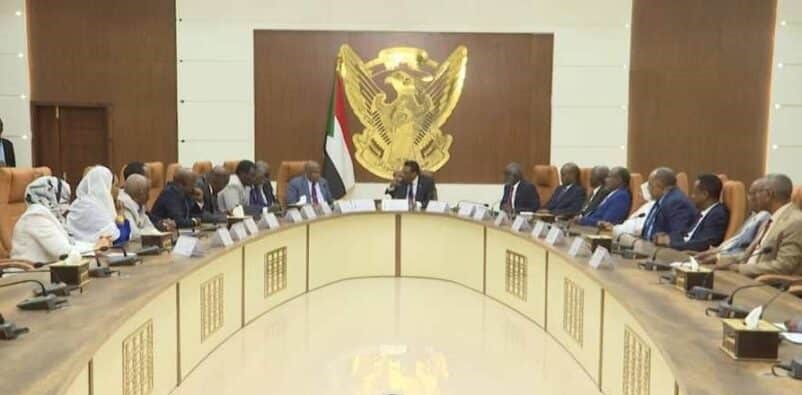Sudan’s cabinet held its first meeting in the capital on Tuesday since war erupted with the paramilitary Rapid Support Forces (RSF) in April 2023.
The meeting, chaired by Prime Minister Kamel Idris, took place at the headquarters of the Khartoum state government. State news agency SUNA described it as a “symbolic step toward the return of state institutions to the capital,” amid ongoing security efforts.
Since the start of the conflict, the government had operated from a temporary seat in Port Sudan, in the country’s east.
SUNA reported that Tuesday’s session focused on ministry plans for the remainder of the year, with an emphasis on public services, security, reconstruction and the voluntary return of displaced residents. The gathering came two days after the swearing-in of the ministers of health and livestock, leaving only the foreign affairs post vacant.
Speaking at a press conference, Idris said the cabinet reviewed ministry plans through the end of the year, prioritizing reconstruction, economic recovery, service delivery and strengthening productive sectors. He also announced a national cleanup campaign in Khartoum and called on citizens and both public and private institutions to take part.
Copies of a book authored by Idris, Sudan 2025: Assessing the Path and the Dream of the Future, were distributed to participants.
Idris said the meeting also addressed plans for a “comprehensive Sudanese-Sudanese dialogue,” which he described as inclusive of all groups and aimed at promoting national reconciliation, peace and improved foreign relations.
The government aims to fully relocate back to Khartoum by October, and has stepped up efforts to restore water, electricity and healthcare services, as well as rebuild damaged infrastructure.
Idris was sworn in on May 31 before Transitional Sovereignty Council Chairman Gen. Abdel Fattah al-Burhan.
Since the outbreak of war, Khartoum has been the main battleground between the army and the RSF. The paramilitary group had controlled much of the capital, while the army held key military sites in Khartoum, Bahri and Omdurman.
In May, the army said it had regained full control of Khartoum, declaring the capital free of RSF fighters. It has since reported gains in other regions, including White Nile state.
The conflict has killed more than 20,000 people and displaced some 15 million, according to the United Nations and Sudanese officials. A separate study by U.S. universities estimated the death toll could be as high as 130,000.




